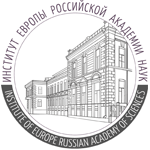институт европы российской академии наук
Серия мероприятий, организованных Женевским центром политики безопасности
- 05 июня 2024
3-5 июня 2024 года член-корреспондент РАН Ал.А. Громыко, директор Института Европы РАН принял участие в серии мероприятий, организованных Женевским центром политики безопасности (GCSP), под председательством Томаса Гремингера, бывшего генерального секретаря ОБСЕ.
Состоялась публичная лекция Роуз Геттемюллер (главный переговорщик со стороны США по выработке Договора о мерах по дальнейшему сокращению и ограничению стратегических наступательных вооружений (СНВ-3), подписанного Дмитрием Медведевым и Бараком Обамой в 2010 году в Праге). Обсуждались вопросы будущего (или его отсутствия) европейской системы безопасности, проблематика стратегической стабильности, обычных вооружённых сил в Европе, вопросы контроля над вооружениями, управления конфронтацией и возможности по деэскалации.
В своём выступлении Ал.А. Громыко отметил:
«The Eastern flank of NATO is increasingly resembles what it was in the days of the Cold War but with a substantial difference that now NATO operates hundreds or even thousands kilometres closer to the Russian borders. The Cold War concept of the North flank is also returning with all its ramifications including increasing activities along the GIUK gap.
The Arctic council is in a precarious condition but still is alive. Under Norwegian chairmanship there have been attempts to facilitate its workings.
What is left of strategic stability? In light of the proxi-war of West against Russia in Ukraine Russia suspended its participation in the New Start but both sides declared that they would continue to adhere to its ceilings and to the agreement on the strategic missile launch notification. The Comprehensive nuclear test ban treaty still functions well and is taken very seriously by all sides. Recently the US conducted a subcritical nuclear test, which is disturbing to other nuclear powers although does not breach CTBC. In 2023 Russia deployed its tactical nuclear weapons in Belorussia in a response to NATO nuclear sharing. Also recently in its Southern military district Russia conducted military exercises on the use of tactical nuclear weapons in a response to escalatory rhetoric and provocative actions of several NATO countries.
The INF moratorium, proposed by Russia in 2020 and then enhanced in 2021, is an extremely important issue. The situation unfolds in a negative way. The US recently deployed on the temporary basis the Typhon MRC with Mk-70 launcher in Philippines and did it already twice in Europe in Bornholm. This is not just Typhon which may launch SM-6 and Tomahawks, but the US also develops a much more powerful hypersonic Dark Eagle system. If unchecked one may only guess if that activities of the US may bring about in the future a change in the Russia’s nuclear doctrine from launch-on-warning to pre-emptive strike and if it may persuade China to replace its no first use doctrine with more robust options».







